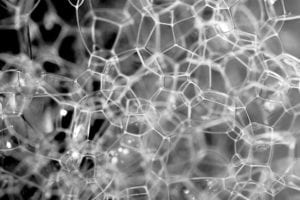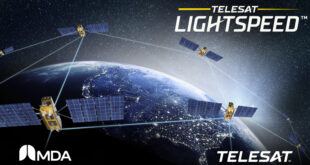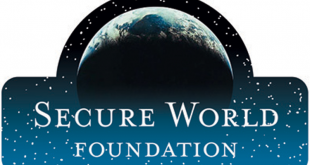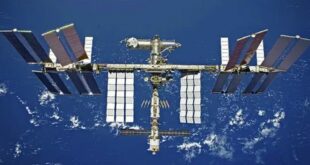
By Jessica West
The number of threats to the security of outer space is growing. Reports on global counter-space capabilities released at the end of March by the Secure World Foundation and the Center for Strategic and International Studies indicate that the range of capabilities that can interfere with and even destroy satellites is increasing, as is covert on-orbit activity. New initiatives such as the U.S. Space Force, Space Commands in the militaries of the United Kingdom and France, and a Defence Space Agency in India signal the extent to which states are preparing for possible warfighting in this domain.
Under these conditions, how can space assets be effectively protected? Right now, it seems that more actors are thinking about developing their own counter-space capabilities under the banner of deterrence. In France, for example, this idea extends to “body guard” or self-defence satellites. Such solutions are less than ideal. Satellites are difficult to protect, and efforts to do so can easily appear offensive, risking both an arms race in space and further contamination of a fragile environment.
Instead, it is imperative that we make the space environment itself safer. To do this, we should think about security from the perspective of public health. My work on the strategies of containment has shown that there are significant links between security and public health. For example, efforts to encourage responsible behaviour can enhance both.
We don’t need more hardware to protect assets in outer space. We need better hygiene—stronger norms of behaviour to enhance our collective safety and security.
Controlling contagion
Outer space is home to an incredibly complex system of satellites and other orbiting objects that co-exist in a fragile environment. This system provides essential services to everyone on Earth, every day. But in this connected and shared environment it is hard to protect individual components from the contagious and cascading effects of mutual hazards and dangerous activities. Debris and the Kessler effect illustrate this reality. A single event could damage the entire system. And such events are not rare: consider the near-collision of a SpaceX and an ESA satellite in 2019.
We can see analogies with the global spread of COVID-19. In both cases, it is difficult to build effective barriers against this spread or contagion within such elaborately interconnected systems.
But containment can provide some protection. Containment is a spatial defence against contagion aimed at maintaining the order and integrity of a system. If this reminds you of resilience, that’s because resilience is a strategy of containment, one that is frequently applied to individual satellite systems and national capabilities. But as we are learning from COVID-19, we need to think in terms of the broader collective.
The containment of contagion rests on the core tactics of surveillance and hygiene.
Better surveillance and earlier detection of dangers can mitigate harm to our assets in outer space. Excellent work is now being done to raise awareness of this need, to improve technical capabilities, and to find solutions in collaboration with other space actors. More needs to be done, but the momentum in there.
Hygiene involves controlling and changing behaviour within a system by providing actors with solid information and promoting best practices. The importance of good hygiene cannot be overstated and in neither case explored here is better hygiene a quick fix or a perfect solution.
In the absence of a vaccine, the effective control of COVID-19 comes down to this: handwashing, elbow coughing, and physical distancing. In outer space, the notion of good hygiene is not new: space actors actively try to limit the shedding of debris, preserve a safe distance between assets, and do not interfere with the activities of other actors. But more is needed. Good hygiene practices must extend to cover the growing number of actors, the increasing complexity of on-orbit activities, and the changing security dynamics.
When hygiene practices are widely accepted, they become norms. This process is not an easy one. U.S. Assistant Secretary for International Security and Non-Proliferation Dr. Christopher Ford recently asserted that “you don’t just declare norms; you grow them.” Growth requires nutritious soil. Ford’s wider remarks show that in the current environment of outer space security, that soil is poisoned with accusations and mistrust.
A prescription for public health in outer space
Positive efforts to establish stronger normative behaviour in outer space are gaining momentum. In 2019, the UN Committee on the Peaceful Uses of Outer Space (UN COPUOS) adopted voluntary guidelines for the long-term sustainability of outer space. As well, a number of private and civil society organizations, including the Coalition for Space Safety and Sustainability and the Consortium for Execution of Rendezvous and Servicing Operations (CONFERS), have published and are promoting collections of responsible behaviours in outer space.
But as reports on counter-space activities make clear, we need norms that extend to the security and military communities. Many documented activities and capabilities such as covert maneuvers, close approaches, and shadowing of foreign satellites may not be overtly dangerous. Yet in the absence of shared understandings about acceptable practices, they make us all less safe by creating grounds for mistrust and misinterpretation that can result in harmful missteps.
Collective buy-in is required in order to provide mutual protection. Buy-in is a result of sustained trust and engagement. At the international level, hygienic behaviour relies on robust multilateralism, a core casualty of COVID-19.
In the meantime, individual efforts to promote responsible norms of behaviour in space can continue. For example, actors can refrain from activities that others find threatening and be more transparent about their actions. Civil society remains active. With funding from a Canadian Department of National Defence Mobilizing Insights in Defence and Security (MINDS) grant, I’m creating a map of the existing normative terrain in outer space, which can be used to consider new paths forward for national security actors.
These attempts at hygiene are not perfect. Proposals by the United Nations Institute for Disarmament Research and the Government of Canada on new rules related to the testing of anti-satellite (ASAT) weapons fall short of a more comprehensive ban on the use of weapons in space. But they can make us safer. They can limit the most harmful effects. They can stabilize the environment and buy us time to work out a longer term cure.
Our collective security on Earth depends on critical resources from outer space. So does global public health. Right now, Earth observation data and communications capabilities are helping us to fight a contagious disease. We must protect these capabilities and the environment in which they operate.
Now is not the time for an arms race in space. Now is the time for containment and good hygiene, before it’s too late.

Jessica West, PhD, is a Senior Researcher at Canadian peace research institute Project Ploughshares and Managing Editor of the Space Security Index annual publication. Her research and policy work is focused on technology, security, and governance. She holds a PhD in global governance and international security from the Balsillie School of International Affairs, Wilfrid Laurier University where she worked on the confluence of military and medical modes of containment and resilience.
 SpaceWatch.Global An independent perspective on space
SpaceWatch.Global An independent perspective on space




